Honoring Black History Month at CommUnityCare Health Centers
At CommUnityCare Health Centers, we recognize the invaluable contributions of our diverse team members who help shape and strengthen the care that we provide to our communities. This Black History Month, we are proud to spotlight three remarkable employees and their heritage and dedication to health equity.
We also celebrate all the Black professionals at CommUnityCare Health Centers who dedicate their talents and passion to advancing health equity.
Brandon Altillo, MD, MPH
Physician, Internal Medicine | 2.5 years at CommUnityCare Health Centers
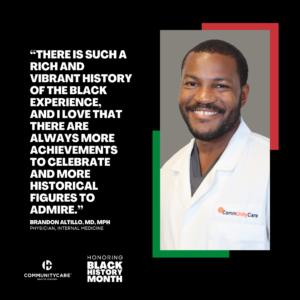
Dr. Altillo’s Afro-Caribbean heritage has shaped his approach to life and medicine, instilling resilience, practicality, and a strong sense of family. His upbringing in a culture that embraces adaptability in the face of adversity has influenced his perspective as a physician.
He sees Black History Month as an opportunity to continuously learn and celebrate the achievements of Black individuals while acknowledging systemic barriers.
“There is such a rich and vibrant history of the Black experience, and I love that there are always more achievements to celebrate and more historical figures to admire,” he adds. “Even though it is critically important to recognize the historic and systemic disadvantages Black people have faced and continue to face, it is also so uplifting to have time dedicated to celebrate the strength, resilience, and brilliance of Black people throughout our history.
Altillo is a leader in the CommUnityCare Internal Medicine Residency Program and says he has first-hand experience watching how CommUnityCare Health Centers is equipping the future generations.
“The CommUnityCare team plays such a central role in increasing access to care and reducing health disparities in Austin, especially the black community,” he says.”I know that they are training the next health care leaders to continue this important work providing person-centered, equity-minded, culturally sensitive care, while also reinventing the systems that prevent some from achieving their full potential of health and wellness.”
Shondrea Harroon, PhD
Associate Director, Patient Access and Financial Eligibility | 3 years at CommUnityCare Health Centers

“Cultural heritage is more than just a part of our background; it profoundly influences who we are and how we relate to the world,” said Shondrea Harroon. “As an African American, I have found that my journey has been deeply shaped by the rich traditions and stories passed down through generations.”
For Haroon, her African American heritage has instilled in her a deep sense of resilience, cultural pride, and commitment to community. Black History Month holds a special place in her heart, as a time of reflection and celebration for the achievements and struggles of those who have come before us.
Haroon also shares her dedication for creating an inclusive environment at CommUnityCare Health Centers, mentoring future leaders, and advocating for health equity.
“The work that I do at CommUnityCare Health Centers takes on special significance during Black History Month. It is an opportunity to engage in meaningful conversations” added Haroon. “By embracing our unique backgrounds, we can foster a more inclusive and welcoming society. I encourage everyone to participate in this important dialogue, not just during Black History Month, but throughout the entire year.”
Dominique Holman
Black Men’s Health Clinic Outreach Program Manager | 5 years at CommUnityCare Health Centers
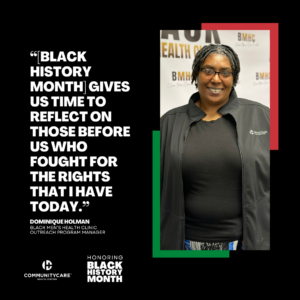
Dominique Holman’s passion for community outreach is deeply rooted in the wisdom and resilience passed down by her grandparents and great aunt. Black History Month holds personal significance for her—not only as a time to reflect on the fight for civil rights but also because she celebrates her birthday this month.
“Although February is the shortest month, it gives us time to reflect on those before us who fought for the rights that I have today,” she says.
Her work in the CommUnityCare organization, particularly at the Black Men’s Health Clinic, is driven by her commitment to breaking generational health disparities and creating a safe space where Black men can seek care without stigma.
“Black Men’s Health Clinic is a safe space where men can be themselves and open up without judgment. Our team is here, ready to support and guide all men through their healthcare journey.” Holman believes in setting the tone for compassionate, patient-centered care, ensuring every individual is treated with dignity and respect.
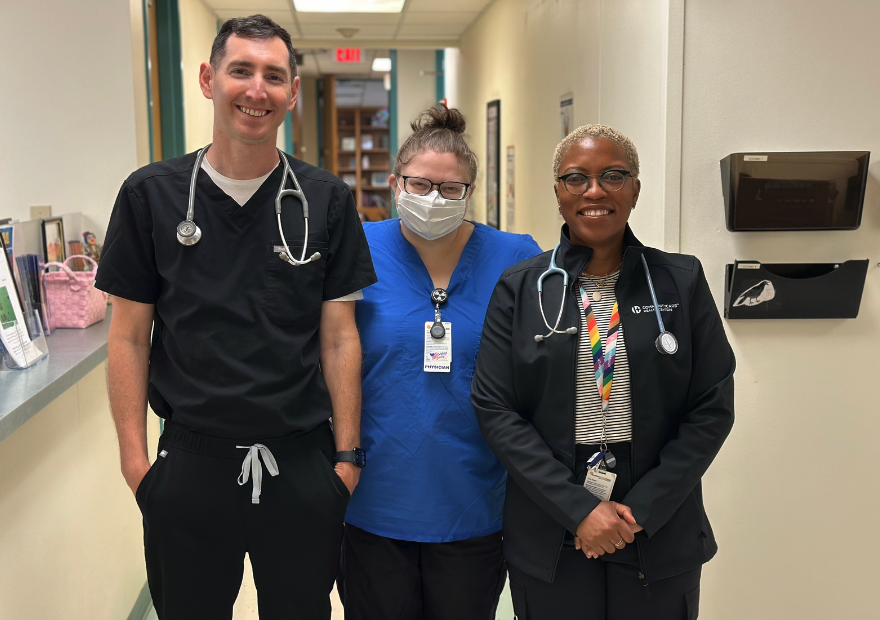
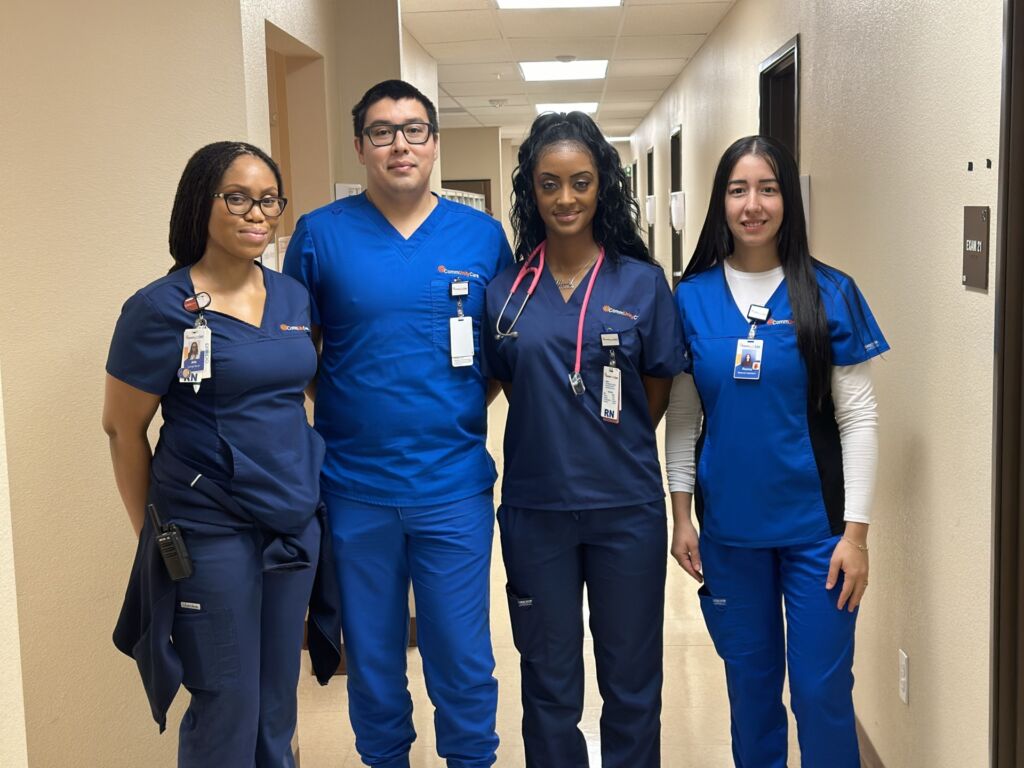
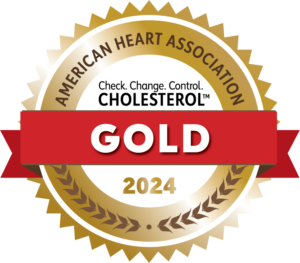 The
The 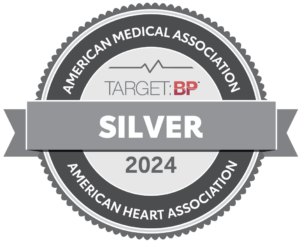 The
The 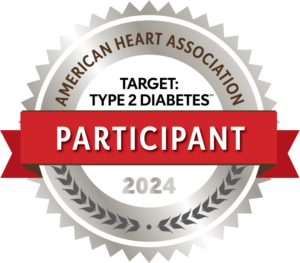 The
The  For Chad Roberts, joining the United States Marine Corps was originally a way out of rural Ohio. “The region does present an abundance of opportunities for poor, Midwestern kids with little to no guidance,” said Roberts.
For Chad Roberts, joining the United States Marine Corps was originally a way out of rural Ohio. “The region does present an abundance of opportunities for poor, Midwestern kids with little to no guidance,” said Roberts.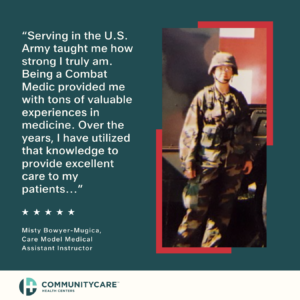 The strength that Misty Bowyer-Mugica discovered during her time as a combat medic in the U.S. Army has become her foundation as a healthcare professional at CommUnityCare Health Centers.
The strength that Misty Bowyer-Mugica discovered during her time as a combat medic in the U.S. Army has become her foundation as a healthcare professional at CommUnityCare Health Centers.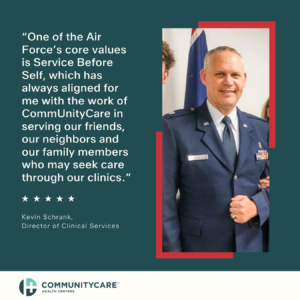 After more than 20 years of service in the Air National Guard, Kevin Schrank reflects on the support he received from his family and colleagues, which enabled him to serve with commitment both at home and abroad.
After more than 20 years of service in the Air National Guard, Kevin Schrank reflects on the support he received from his family and colleagues, which enabled him to serve with commitment both at home and abroad.
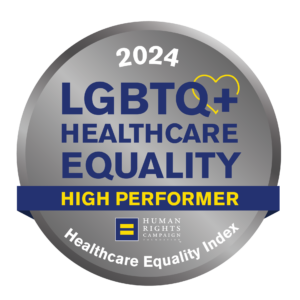 Campaign Foundation,” said Jaeson Fournier, President and CEO of CommUnityCare Health Centers. “At CommUnityCare, we are dedicated to providing inclusive healthcare services to all members of the LGBTQ+ community. This recognition reaffirms our commitment to creating a welcoming and supportive environment for LGBTQ+ patients and their loved ones. As we celebrate this achievement, we remain steadfast in our mission to eliminate disparities and ensure equitable access to healthcare for the communities we serve.”
Campaign Foundation,” said Jaeson Fournier, President and CEO of CommUnityCare Health Centers. “At CommUnityCare, we are dedicated to providing inclusive healthcare services to all members of the LGBTQ+ community. This recognition reaffirms our commitment to creating a welcoming and supportive environment for LGBTQ+ patients and their loved ones. As we celebrate this achievement, we remain steadfast in our mission to eliminate disparities and ensure equitable access to healthcare for the communities we serve.” there are concerns about HPSO contamination of synthetic cannabinoids (“K2 or Spice”) and stimulants like amphetamines, cocaine, and methamphetamine.
there are concerns about HPSO contamination of synthetic cannabinoids (“K2 or Spice”) and stimulants like amphetamines, cocaine, and methamphetamine. “At CommUnityCare Health Centers, our mission is to serve and uplift communities of color, directly confronting institutional biases and racism,” said Jaeson Fournier, President and CEO. “In 2023, 86.2% of our patients identified as racial or ethnic minorities, underscoring our commitment to tackling health inequities head-on.”
“At CommUnityCare Health Centers, our mission is to serve and uplift communities of color, directly confronting institutional biases and racism,” said Jaeson Fournier, President and CEO. “In 2023, 86.2% of our patients identified as racial or ethnic minorities, underscoring our commitment to tackling health inequities head-on.” 